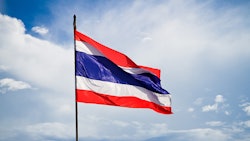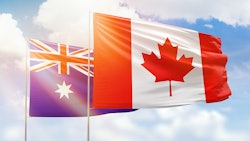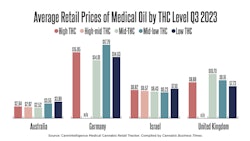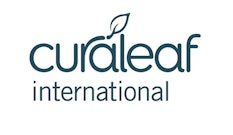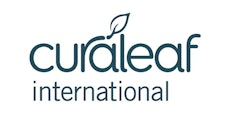The buzz around the Drug Enforcement Administration’s (DEA) pending decision to potentially reclassify cannabis as a Schedule III drug under the Controlled Substances Act (CSA) continues to invoke a maelstrom of speculation throughout the industry.
What would such a decision mean—for industry oversight and enforcement, for taxes, for scientific research, for criminal justice, for normalization—and when will the DEA formally initiate a proposal with an actual rulemaking process?
Legal experts, business executives, advocacy groups and various stakeholders in general have continued weighing in on myriad possibilities in the days, weeks and months following news that broke in late August 2023 that the U.S. Department of Health and Human Services (HHS) recommended to the DEA that cannabis move from Schedule I to Schedule III under the CSA.
It took HHS officials 4 1/2 months to finally release the unredacted details of their review and recommendation—as obtained by Attorney Matthew Zorn on Jan. 12—following multiple Freedom of Information Act requests and at least one lawsuit.
RELATED: Cannabis Rescheduling Document Details Rationale For Schedule III Recommendation
The recommendation came after President Joe Biden directed in October 2022 HHS Secretary Xavier Becerra and Attorney General Merrick Garland to initiate an administrative process to review how cannabis is scheduled under federal law: a White House first.
Should cannabis be reclassified as a Schedule III substance, it would be recognized as having federally accepted medical use. Also, it would break ties with “high abuse” substances like heroin, LSD and ecstasy.
But the DEA has final authority in the executive branch over rescheduling drugs, and history has shown the federal agency has not been receptive to the idea that cannabis belongs anywhere other than on the Schedule I list of controlled substances. As recently as 2018, former DEA Administrator Robert Patterson told U.S. House Judiciary members that the reason cannabis “remains in Schedule I is because of the science.”
Notably, there have been five rescheduling petitions since 1972, all of which have been shot down by the DEA, including a pair of denials in 2016 to initiate proceedings to reschedule cannabis. These historical events should give caution to any industry players doing a victory dance before the cigars are officially lit on the Schedule III recommendation.
None of the previous five rescheduling petitions, however, were initiated or directed by a U.S. president, which is a key differentiator to the current landscape under a Biden White House. But the historical significance of the DEA’s inaction on the rescheduling front should not be overlooked.
Under current DEA Administrator Anne Milgram, does the agency’s former views on “science” still apply now that federal agencies—the HHS and the Food and Drug Administration—have recognized the acceptable medical use of cannabis in the United States?
This is another key differentiator between the past and the present: The HHS conducted an eight-factor scientific analysis and has formally made a rescheduling recommendation based on cannabis’s medicinal value and lower risk for potential abuse.
Here, we dive into the past of a decades-long fight, including a 1975 admission by the DEA that rescheduling cannabis does not violate an international drug treaty. Rather, the DEA’s refusal to reschedule cannabis a half a century ago was partially grounded in the fact that HHS’s predecessor, the U.S. Department of Health, Education and Welfare (HEW), never recognized the plant’s medical value.
NORML’s 1972 Petition: A Timeline
May 1972
Roughly a year after the Controlled Substances Act went into effect following President Richard Nixon’s signing, the nation’s first administrative rescheduling petition was filed by the National Organization for the Reform of Marijuana Laws (NORML) in an effort to allow cannabis to be legally prescribed by physicians.
It is contrary to federal law for physicians to do this as long as cannabis remains classified as a Schedule I drug—a classification for substances that have no medical value—but reclassifying the plant to Schedule II or lower on the CSA would change that restriction.
Editor’s note: Some states require doctor recommendations for patients to participate in their medical cannabis programs, and the federal government has not intervened.
NORML’s petition, filed with the Bureau of Narcotics and Dangerous Drugs (BNDD)—the DEA’s predecessor—called for cannabis to be descheduled entirely or to be transferred to Schedule V, where it would be subject to the least amount of government controls under the CSA, according to a 1988 opinion made by Francis Young, the DEA’s chief administrative law judge at the time (more on this opinion later).
September 1972
Less than four months after NORML’s filing, BNDD Director John Ingersoll refused to accept the petition, claiming he was not authorized to process the request because of the Single Convention on Narcotic Drugs of 1961, an international drug treaty that aims to prevent countries from legalizing the nonmedical use of cannabis, according to a lawsuit later filed by NORML.
NORML appealed Ingersoll’s snubbing in the U.S. Court of Appeals for the District of Columbia Circuit. It took more than two decades of court challenges—with certain admissions by the DEA regarding the 1961 Single Convention treaty along the way—before the appeals court allowed the DEA’s denial of NORML’s petition to stand.
Editor’s note: Much like the United States’ Controlled Substances Act, the Single Convention establishes several classifications or “schedules” of substances, to which varying degrees of control are attached. Schedule I of the Single Convention contains substances considered to carry a relatively high abuse liability—included in this category are cannabis, cannabis resin, and extracts and tinctures of cannabis—according to the U.N.
As recently as its 2022 Annual Reportreleased in early 2023, the United Nation’s International Narcotics Control Board expressed concern over trending legalization reform, specifically calling attention to Canada and Uruguay’s federally legalized markets as well as state-licensed programs in the United States.
January 1974
While the appeals court determined that there was no procedural defect or failure by the DEA to comply with a clear-cut requirement by law, judicial review found that Ingersoll did error in denying NORML’s petition without a “reflective consideration and analysis.”
According to the court, “if this had been handled properly by [Ingersoll] as a decision on the merits, [NORML] could have refined their alternative position in the light of [Ingersoll’s] decision. Instead, [NORML] considered [Ingersoll’s] ‘rejection’ of even a filing to signal short shrift for a serious presentation. It was not the kind of agency action that promoted the kind of interchange and refinement of views that is the lifeblood of a sound administrative process.”
Furthermore, the court suggested that proceeding on remand—meaning that the filing be sent back for a do-over—be divided into two phases: First, the Department of Justice (which the DEA operates under) could consider whether there was latitude to reschedule cannabis consistent with the 1961 Single Convention treaty; and the second phase would arise only if some latitude was found.
In June 1974, the DEA announced it was prepared to hold a hearing to determine the regulatory controls necessary to satisfy the Single Convention. In response, NORML requested a “phase one” hearing, according to the appeals court.
April 1977
In its 1977 decision, the U.S. Court of Appeals for the D.C. Circuit reaffirmed a statutory requirement under the Controlled Substances Act that the acting Attorney General must share his or her decision-making function on rescheduling or descheduling a substance with the Secretary of HEW.
“Specifically, Section 201(b), 21 U.S.C. § 811(b) provides that prior to commencement of reclassification rulemaking proceedings, the Attorney General must ‘request from the Secretary a scientific and medical evaluation, and his recommendations, as to whether such drug or other substance should be so controlled or removed as a controlled substance,’” according to the court.
The court also affirmed that the Secretary’s recommendations “shall be binding on the Attorney General as to such scientific and medical matters, and if the Secretary recommends that a drug or other substance not be controlled, the Attorney General shall not control the drug or other substance.”
On further processing at the direction of the court, then-DEA Administrator Peter Bensinger referred NORML’s petition to HEW for scientific and medical evaluation.
June 1979
On June 4, 1979, then-Secretary Joseph Califano Jr. advised Bensinger of the results of the HEW evaluation and recommended that cannabis remain in Schedule I, according to Young’s 1988 opinion.
Without holding any further hearings, Bensinger issued a final order 10 days later denying NORML’s petition.
NORML then went back to the U.S. Court of Appeals, which found that “reconsideration of all the issues in this case would be appropriate,” reversing the matter in its entirety for the DEA to reconsider, according to the Federal Register.
By this time, the U.S. Department of Education was created to operate independent of HEW, and, in turn, HHS succeeded HEW.
October 1980
The appeals court directed the DEA to refer all substances at issue to HHS for scientific and medical findings and recommendations on scheduling.
In a letter dated Aug. 16, 1982, the HHS notified the DEA that it recommended continued control of “THC” in Schedule I of the CSA, adding, however, that if a new drug application for THC is approved by the Food and Drug Administration (FDA), then the HHS recommends THC be rescheduled to Schedule II, according to the Federal Register.
May 1985
The FDA approved a new drug application for the product Marinol (Dronabinol), containing a formulation of synthetic THC. The medicine is used to treat nausea and vomiting caused by cancer chemotherapy, according to Cleveland Clinic.
A year later, the DEA announced a final rule placing this THC formulation in Schedule II of the CSA, according to the Federal Register.
April 1986
After more than a decade of court challenges, NORML’s rescheduling petition was finally granted a federal public hearing in 1986 before DEA Administrative Law Judge Francis Young. After conferring with counsel for NORML and DEA, a notice was published in the June 24 Federal Register.
Prehearing sessions commenced in August 1986, and Young gave people who wanted to participate the opportunity to comment.
In January 1987, during the preliminary stages, NORML filed an amended petition for rescheduling cannabis to be placed on Schedule II of the CSA, abandoning its original request that the plant be placed on Schedule V or decontrolled altogether, according to Young’s eventual decision.
After a series of cross examinations in late 1987 and early 1988, oral arguments ensued in June 1988.
September 1988
Young ruled in NORML’s favor that cannabis does not meet the legal criteria of a Schedule I prohibited substance and should be reclassified to Schedule II.
“Based upon the rationale … the administrative law judge concludes that … marijuana ‘has a currently accepted medical use in treatment in the United States’ for spasticity resulting from multiple sclerosis and other causes. It would be unreasonable, arbitrary and capricious to find otherwise,” according to the 1988 ruling.
“The facts set out above, uncontroverted by the [DEA], establish beyond question that some doctors in the United States accept marijuana as helpful in such treatment for some patients,” according to the ruling. “The record here shows that they constitute a significant minority of physicians. Nothing more can reasonably be required. That some doctors would have more studies and test results in hand before accepting marijuana's usefulness here is irrelevant.”
In other words, Young ruled that cannabis was recognized in the medical community and therefore met the standards of medicinal value.
Furthermore, Young ruled that cannabis, in its natural form, “is one of the safest therapeutically active substances known to man,” and that “it would be unreasonable, arbitrary and capricious for DEA to continue to stand between those sufferers and the benefits of this substance.”
December 1989
Despite Young’s determination and recommendation, then-DEA Administrator John Lawn rejected the opinion of the DEA’s administrative law judge and denied NORML’s petition, The Associated Press reported Dec. 30, 1989.
Donald Fiedler, NORML’s national director at the time, told the AP that Lawn’s rejection was arbitrary and capricious because “it means doctors now don’t have that tool available to use marijuana as medicine. Denying access to medicine to those who need it is hypocrisy in the worst sense.”
After NORML appealed the DEA’s decision, succeeding DEA Administrator Robert Bonner relied on a five-point test to assess whether cannabis had any medicinal value. The five-point test was based “somewhat” on criteria Congress had used to decide if certain drugs should be rescheduled, according to the DEA.
March 1992
The DEA issued its official final order denying NORML’s rescheduling petition under the opinion that cannabis has no accepted medical use.
The summary of the denial in the March 26 publication of the Federal Register that year read: “This is a final order of the Administrator of the Drug Enforcement Administration (DEA) concluding the plant material marijuana has no currently accepted medical use and denying the petition of the National Organization for Reform of Marijuana Laws (NORML) to reschedule marijuana from Schedule I to Schedule II of the Controlled Substances Act.”
The DOJ also wrote in the register that “with a little homework, one can learn that marijuana has been rejected as medicine by” the American Medical Association, the National Multiple Sclerosis Society, the American Glaucoma Society, the American Academy of Ophthalmology the American Cancer Society. “Not one American health association accepts marijuana as medicine.”
February 1994
The U.S. Court of Appeals for the District of Columbia issued its final decision allowing the DEA’s denial to stand.
According to this final appeals court ruling, “The [DEA’s] Final Order canvasses the record at length. It recites the testimony of numerous experts that marijuana's medicinal value has never been proven in sound scientific studies. The Administrator reasonably accorded more weight to the opinions of these experts than to the anecdotal testimony of laymen and doctors on which petitioners relied.”
NORML filed a second rescheduling petition in 1995; the Coalition for Rescheduling Cannabis, of which NORML was a member, filed a third petition in 2002; Rev. Bryan Krumm filed a fourth petition in 2009; and former Govs. Lincoln Chafee, I-R.I., and Christine Gregoire, D-Wash., filed a fifth petition in 2011.
The DEA denied each of those petitions, with its most recent ruling coming in 2016.









